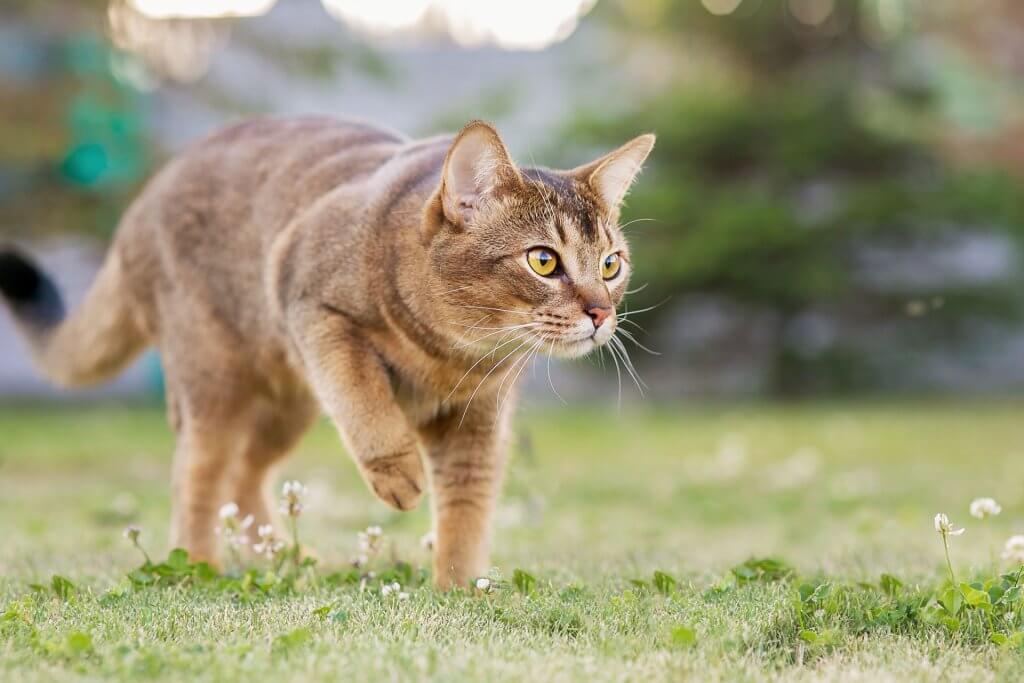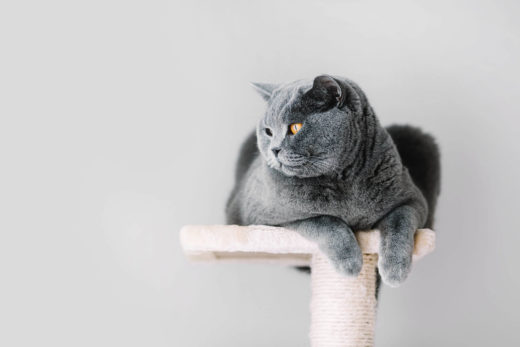It’s hard to believe that the fluffy ball of fur curled up on your lap is also a mighty predator, equipped with lighting reflexes and capable of pinpoint strikes. All cats are natural hunters and rely on built-in instincts to capture and kill prey. Learn all about cat hunting behavior, and how to tame it in this post. Plus, discover the GPS cat tracker that can help you keep tabs on your little hunter at all times.
Table of contents
- Why do cats hunt?
- Feline hunting strategies and techniques
- Why does my cat hunt if they are well-fed?
- Why does my cat bring animals or birds as a gift?
- Why do cats play with their prey?
- How do I spot cat hunting behaviors?
- What are the health risks for cats that hunt?
- How can I stop my cat from hunting?
- Redirect cat hunting behavior through play
- Make your outdoor cat noisy and colorful
- Choose toys that resemble natural prey
- Make feeding time interesting and nutritious
- Keep cats inside at high prey activity times
Why do cats hunt?
All cats, wild and domestic, belong to the animal group known as felines. Cats are born with all the equipment they need for hunting: sharp teeth, lightning-fast reflexes, excellent nighttime vision, superior hearing, and speed, power, or cooperative hunting strategies, depending on the species.
Wild cats hunt other animals so they can eat the meat and feed themselves and their young. Most wild cats are solitary hunters.
Over many centuries, small species of wild cats developed relationships with humans. The cats were kept by people to kill mice and other pests that ate farmers’ stored grain. These domesticated kitties were not pets – they had to find their own food every day. These expert hunters are your cat’s direct ancestors!
Hunting behavior is hard-wired. Domestic cats that live outdoors will act on their hunting instincts by capturing mice, voles, birds, or even rabbits. Indoor cats employ hunting techniques in their everyday life through play.
Feline hunting strategies and techniques
Picture a leopardess crouched on the African savannah. Every muscle is tensed, and she is laser-focused on an antelope grazing nearby. With a wriggle of her hindquarters, the leopard springs forward. After a brief high-speed chase, she brings down her prey with a powerful swat of her front paw and delivers a killing bite to the antelope’s throat.
Your cat is a scaled-down version of that African leopard. Their prey is not a large antelope, obviously, but something more appropriately sized like a songbird or mouse. But your pet cat’s hunting technique is very similar to that of a lion, leopard, bobcat, or mountain lion.
Many felines use the “stalk and pounce” technique to hunt their prey. These cats locate their prey, then crouch low to the ground and slowly creep toward their prey. When the cat is within striking distance, they’ll spring forward onto the prey. Other cats prefer to ambush their prey. They’ll hide, wait patiently for the right moment, and leap onto their prey.

In both cases, the prey is killed with a bite to the throat. The cat’s sharp canine teeth pierce the spinal cord and the powerful jaw crushes the windpipe.
Why does my cat hunt if they are well-fed?
Domestic cats have not been selectively bred as much as dogs have. Therefore, they retain their ancestral hard-wired hunting behavior. Hunting comes as naturally to a cat as eating and sleeping.
The urge to hunt is not tied to hunger. In the wild, cats hunt all the time, even if they are not hungry, because they never know when their next meal will come. If a cat waited until they were desperately hungry to hunt, they might be too weak to capture prey.
Your little furball may not need wild prey for survival, but their hunting instincts are powerful. Therefore, your cat may hunt even if you provide easy access to nutritious food.
Why does my cat bring animals or birds as a gift?
Does your kitty drop “gifts” of dead mice on the doorstep? (Or worse, a mouse that is still alive!) This may be a sign that your cat considers you a part of their family. They are sharing the bounty of their hunt, just as their mother may have done with them when they were kittens.
Indoor cats hunt, too, but their prey is toy mice or balls, which your cat may deliver to you as a gift, even though the toys can’t be eaten.





